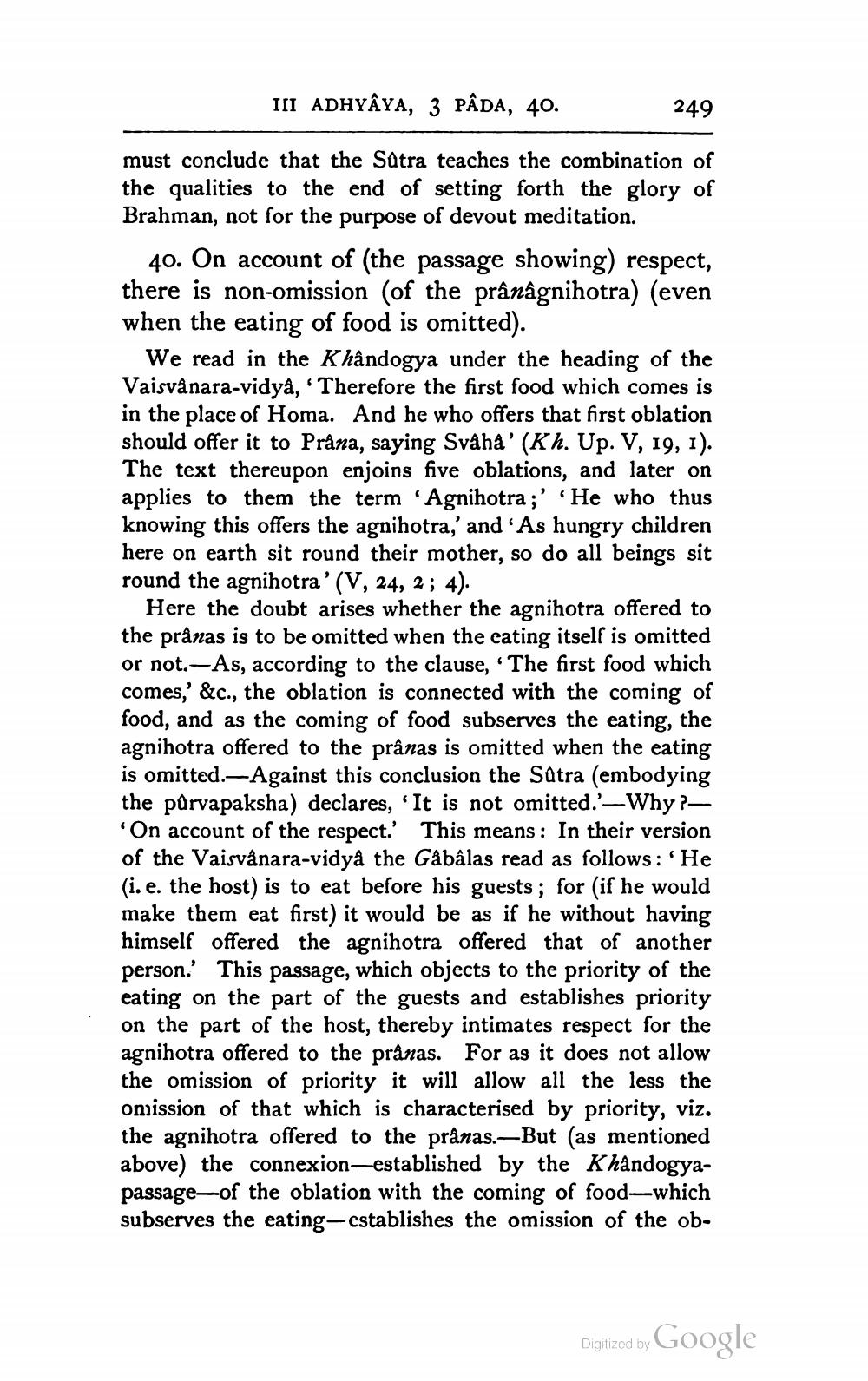________________
III ADHYÂYA, 3 PÂDA, 40.
249
must conclude that the Satra teaches the combination of the qualities to the end of setting forth the glory of Brahman, not for the purpose of devout meditation.
40. On account of (the passage showing) respect, there is non-omission (of the prânâgnihotra) (even when the eating of food is omitted).
We read in the Khândogya under the heading of the Vaisvanara-vidya, 'Therefore the first food which comes is in the place of Homa. And he who offers that first oblation should offer it to Prana, saying Sváha' (Kh. Up. V, 19, 1). The text thereupon enjoins five oblations, and later on applies to them the term 'Agnihotra;' He who thus knowing this offers the agnihotra,' and 'As hungry children here on earth sit round their mother, so do all beings sit round the agnihotra' (V, 24, 2; 4).
Here the doubt arises whether the agnihotra offered to the prânas is to be omitted when the cating itself is omitted or not.-As, according to the clause, 'The first food which comes,' &c., the oblation is connected with the coming of food, and as the coming of food subserves the eating, the agnihotra offered to the prânas is omitted when the eating is omitted.-Against this conclusion the Satra (embodying the purvapaksha) declares, 'It is not omitted.'—Why?'On account of the respect. This means: In their version of the Vaisvânara-vidya the Gâbâlas read as follows: 'He (i.e. the host) is to eat before his guests; for (if he would make them eat first) it would be as if he without having himself offered the agnihotra offered that of another person. This passage, which objects to the priority of the eating on the part of the guests and establishes priority on the part of the host, thereby intimates respect for the agnihotra offered to the prânas. For as it does not allow the omission of priority it will allow all the less the omission of that which is characterised by priority, viz. the agnihotra offered to the pranas.—But (as mentioned above) the connexion-established by the Khåndogyapassage of the oblation with the coming of food—which subserves the eating-establishes the omission of the ob
Digitized by Google




